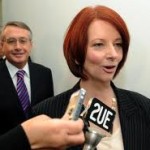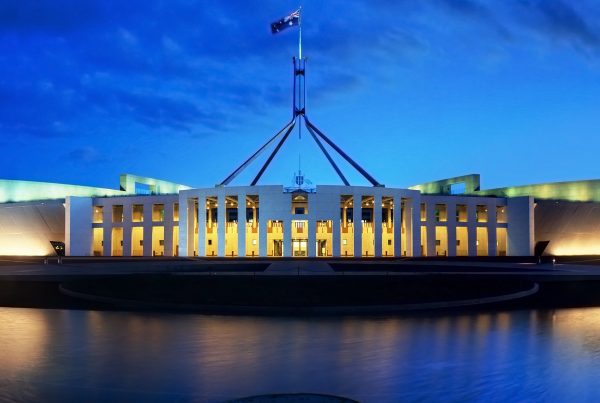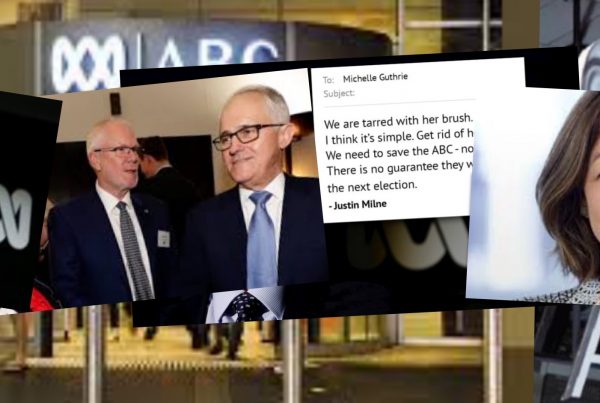There is a lesson in Change Management in the way politics is playing out in Canberra at the moment – public relations practitioners with an interest in Crisis PR take note. It is beautifully summarised in Peter Hartcher’s article this past weekend (an extract below), one of the journalists with a skill to write what many people are thinking. In this case he writes about parallel universes; the perception of the Gillard government’s performance, and the reality.
The House of Reps has passed an extraordinary 185 bills and lost none, out performing the Howard government. But instead earning voter approval, it is so unpopular even insiders are muttering that it will be un-electable next time around.
Crash, or crash through?
Back to the public relations’ lesson in change management, which is this: during change, you have to keep all the critical stakeholders travelling with you; if one slows down, all slow down; if one stops, all stop; if one needs pampering and a bit of extra time, then everyone has to take time out. It sounds obvious, but often it is overlooked by zealous people, galloping to make a difference. In change management sometimes it takes evolution instead of revolution, sometimes it just’s plain slowing down, sometimes it’s about the attention to detail to ensure there are no bungles. There are countless case studies of courageous Change Creators who’ve been too fast and furious – Gillard is just one.
Here’s Hartcher’s take:
Worlds apart on politics
August 27, 2011
OPINION
Judging how well the Gillard government is doing depends on whether evidence trumps emotion.
Australian politics exists in a pair of parallel universes. In one, an illegitimate government is led by a liar Prime Minister with no mandate. This sham government plans to vandalise the economy and make the ordinary people suffer, just to help the Greens realise a mad crypto-communist utopia.
The Opposition Leader has called for a “people’s revolt”. With spontaneous popular rallies and convoys demanding an immediate election, there is an air of national emergency. The minority government’s grip on Parliament is fragile and could slip at any moment.
Death threats against the Prime Minister are increasingly evident in public view. A prominent broadcaster on the public airwaves feels entitled to urge listeners to put the Prime Minister in a sack, take her far out to sea and dump her.
And with the government’s hold on the Parliament under potential challenge by a police investigation into a government MP accused of criminal fraud, the government is paralysed. The country is on the brink.
In the other universe, a government that was sworn in under all constitutional norms has just completed its first year. The executive has firm control of the Parliament.
The federal budget passed more quickly this year than any under the majority Labor governments in the preceding three years. The government has won votes to pass 185 bills in the House of Representatives and lost none. The Howard government passed 108 in the comparable 12 months.
The government has the parliamentary numbers to pass bills for a carbon tax in an agreement with the Greens and independents. After three years, the tax is to be replaced by an emissions trading scheme.
The federal Treasury’s modelling projects that it will increase energy prices by about 10 per cent, have a negligible effect on economic growth of 0.1 per cent, and increase the cost of living by 0.7 per cent. Middle and lower income households will be compensated in any case.
The Prime Minister plainly broke her pre-election promise that there would be “no carbon tax under the government I lead”. She denies being deliberately deceitful but pleads changed circumstances.
And the people’s revolt? The rallies that have come together to protest against the carbon tax and demand an immediate election have drawn a total of about 14,000 people, according to the mainstream media’s estimates. The counter-rallies in favour of the carbon tax have drawn more than 50,000, according to mainstream media estimates.
The broadcaster who urged his listeners to dump the prime minister at sea, Alan Jones, a populist demagogue, is not taken seriously. The Australian Broadcasting Authority found in 2000 that this tower of moral outrage had breached the Commercial Radio Codes of Conduct with “misleading” conduct, accepting large payments from commercial sponsors for endorsing their products without disclosing the deals to listeners.
Far from being paralysed, the Gillard government has delivered some substantial reforms. It’s a partial list, but here are eight, in no particular order. First, it has reached agreement with the states on a new system for public hospital funding which will add an extra $16.4 billion in federal funding through to 2019-20.
Second, it has committed itself to $2.2 billion for improved mental health services.
Third, the budget in May included the announcement of $2.4 billion to improve skills training and fund 130,000 new training places over four years.
Fourth, the flood levy is raising an extra $1.8 billion to help finance the national contribution to Queensland’s recovery. Fifth, the government has won the approval of Parliament and Telstra for the structural separation of the phone company’s retail and wholesale businesses. This is allowing the roll-out of the national broadband network to proceed.
Sixth, the government has reached agreement with the states for the harmonisation of occupational health and safety laws across all jurisdictions, a reform that should lower costs for business and improve efficiency.
Seventh, the government reached another agreement with the states last week, this time to harmonise transport regulation. Finally, it won parliamentary passage this week of its law to require tobacco companies to sell cigarettes in plain packaging.
Hartcher continues –
The first is the universe of populist outcry and public impression. The second is the universe of constitutional, legislative and economic reality. The two universes will intersect on election day.
Read more: http://www.smh.com.au/opinion/politics/worlds-apart-on-politics-20110826-1jecw.html#ixzz1WAGmJ8du
From this point perception takes over from reality, and the polls speak for the public – Gillard’s lost it.
From a public relations or Crisis PR point of view the Gillard government has been all about an absence of strategy; in this Change Management strategy, keeping the critical stakeholders (or in political jargon, a majority) aligned, in other situations the basic strategy rules for success in Crisis PR. From the outside we can see these symptoms – what we can’t see is the root cause, because there is no shortage of strategists inside the Labor Party.
Good strategy is hard; almost impossible if you’re a tactical thinker. Perhaps that’s the problem. It takes skill to imagine a conclusion and then work backwards to the present day, spotting the land mines. Whether it’s a property development or a merger/acquisition; the opening of a mine or the commencement of coal seam gas exploration; or solving the boat people issue or managing the live export crisis (or the BER, the pink batts, Craig Thompson), the public relations principles remain the same.





